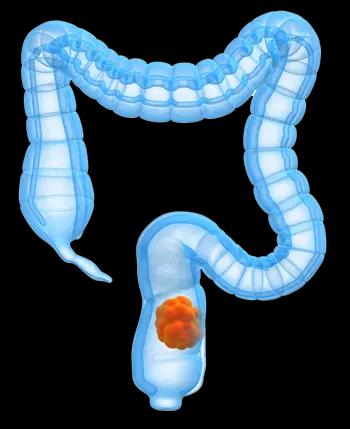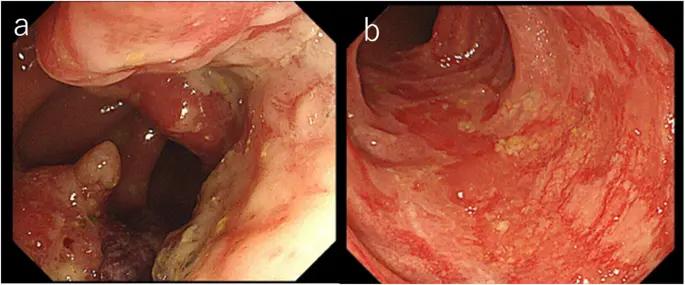Colorectal cancer is a serious health concern that affects millions of people worldwide. This type of cancer starts in the large intestine in the colon or rectum. As the disease progresses, it can spread to other parts of the body, a process known as metastasis. Understanding where colorectal cancer spreads first is essential for early-stage detection and effective treatment.
When colorectal cancer spreads, it typically follows a predictable pattern. The liver, lungs, and nearby lymph nodes are often the first sites affected. This article will explore the common sites of colorectal cancer metastasis, how the disease spreads, methods to detect metastatic cancer, and treatment options available for patients. By shedding light on these aspects, we aim to provide valuable information to help patients and their loved ones better understand and manage this challenging condition.
Common sites of colorectal cancer metastasis
Colorectal cancer frequently spreads to specific organs in the body. The liver stands out as the most common site for metastasis, followed by the lungs. Clinical trials show that 6-8% of colon cancers and 10-18% of rectal cancers spread to the lungs. Lymph nodes near the original tumour are also often affected. The peritoneum, which lines the abdominal cavity, can be another target for cancer spread. In some cases, colorectal cancer may metastasise to the nervous system, though this is less common. Understanding these patterns helps doctors in early detection and treatment planning for patients with colorectal cancer.
The process of colorectal cancer spread
Colorectal cancer spread, or metastasis, is a complex process that can begin early in tumour development. This process involves multiple steps, including the invasion of cancer cells into nearby tissues, entry into the bloodstream, and establishment of new tumours in distant organs. Recent research has shown that metastasis can occur when the primary tumour is smaller than a pencil tip, suggesting some tumours may be predisposed to spread. The liver and lungs are common sites for colorectal cancer metastasis, with specific genetic changes playing a crucial role in determining a tumour’s potential to spread.
Detecting metastatic colorectal cancer
Detecting metastatic colorectal cancer involves various imaging techniques and tests. A colonoscopy is the most common screening test for colon cancer. Computed tomography (CT) scans are commonly used, offering a sensitivity of 74%-84% and specificity of 95%-96% for liver metastases. Magnetic resonance imaging (MRI) has shown superior performance, particularly for lesions smaller than 1 cm, with sensitivity ranging from 80%-88% and specificity from 93%-97%. For lung metastases, chest X-rays are often sufficient, as CT scans can detect many non-specific lesions that may not be cancerous. Positron emission tomography (PET) scans, using radioactive sugar, help identify cancer spread beyond the colon or rectum. These imaging methods play a crucial role in cancer staging and guiding treatment decisions for patients with colorectal cancer.
Treatment options
Metastatic colon cancer treatment has seen significant progress in recent years. Patients now have access to a range of options, including chemotherapy, radiation therapy, targeted therapy, and immunotherapy. These treatments aim to improve quality of life and extend survival. Chemotherapy remains a cornerstone, with drugs like fluorouracil, irinotecan, and oxaliplatin commonly used. Targeted therapies, such as bevacizumab and cetuximab, focus on specific molecular features of the cancer. For patients with certain genetic profiles, immunotherapy drugs like pembrolizumab or nivolumab may be effective. The choice of treatment depends on risk factors such as the cancer’s molecular characteristics, the patient’s overall health, and previous treatments received. Healthcare professionals work closely with patients to tailor treatment plans, balancing effectiveness with quality of life considerations.
Conclusion
The journey of colorectal cancer from its origin in the colon or rectum to other parts of the body is a complex process that has a significant impact on patient outcomes. Understanding where this cancer spreads first – typically the liver, lungs, and nearby lymph nodes – is key to early detection and effective treatment. This knowledge enables healthcare teams to tailor their approach, using a mix of imaging techniques and treatment options to tackle the disease head-on.
As research continues to shed light on the intricacies of colorectal cancer metastasis, new avenues for intervention are emerging. From cutting-edge targeted therapies to immunotherapies, the landscape of treatment options is expanding, offering hope to many patients. While the path ahead may be challenging, ongoing advancements in detection and treatment are paving the way to improve the lives of those affected by this disease.
Sources
- Metastatic Colorectal Cancer May Spread Early – NCI
- About advanced bowel cancer – Cancer Research UK
- About advanced bowel cancer – Bowel Cancer UK
- Colon Cancer – StatPearls – NCBI Bookshelf
- What is bowel cancer? – Cancer Research UK
Medical Disclaimer
NowPatient has taken all reasonable steps to ensure that all material is factually accurate, complete, and current. However, the knowledge and experience of a qualified healthcare professional should always be sought after instead of using the information on this page. Before taking any drug, you should always speak to your doctor or another qualified healthcare provider.
The information provided here about medications is subject to change and is not meant to include all uses, precautions, warnings, directions, drug interactions, allergic reactions, or negative effects. The absence of warnings or other information for a particular medication does not imply that the medication or medication combination is appropriate for all patients or for all possible purposes.











